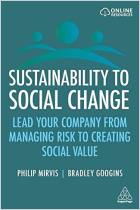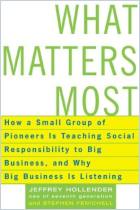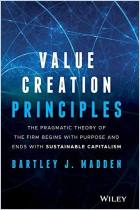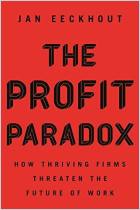
Book
Grow the Pie
How Great Companies Deliver Both Purpose and Profit
Recommendation
Economics professor Alex Edmans recasts the concepts of corporate social responsibility and shareholder value into what he terms “Pieconomics.” He posits that increasing the economic pie for everyone is better – and more profitable – than just reallocating its slices to some. He cites numerous instances of companies that are “pie growers,” creating value for society as well as their bottom lines. Executives and business students will find this a refreshing take on an increasingly important task for companies.
Summary
About the Author
Alex Edmans is a finance professor at the London Business School and the academic director of the Centre for Corporate Governance.
Learners who read this summary also read
Book
Book
Book
Book






















Comment on this summary